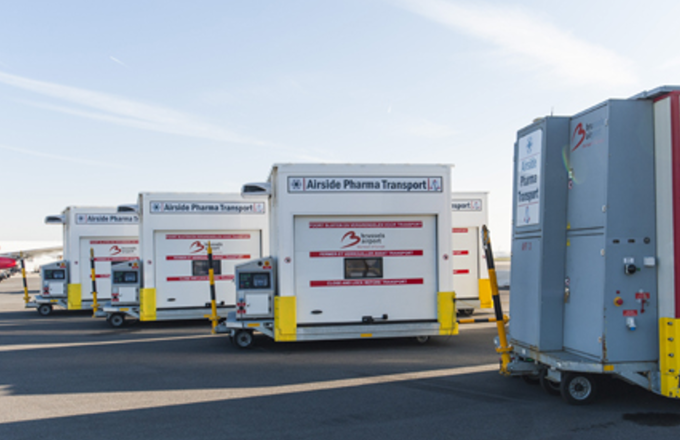
Europe is experiencing a surge in pharmaceutical air logistics; however, it requires greater regulatory consistency to fully capitalize on this growth
5 months ago
Europe is experiencing a surge in pharmaceutical air logistics; however, it requires greater regulatory consistency to fully capitalize on this growth

The European pharmaceutical cargo market is thriving, largely due to the region's expanding role as a production hub. However, concerns about regulatory compliance within the EU are emerging as a significant issue.
Major airports such as Frankfurt, Schiphol, Charles de Gaulle, and Brussels, along with rising gateways like Vienna, have established advanced handling capabilities for pharmaceutical cargo. Brussels Airport (BRU) has secured several important pharmaceutical contracts in recent years, extending its reach well beyond national borders. This growth has made BRU the largest pharmaceutical export hub in Europe, with approximately 17% of its total exports comprising pharmaceutical shipments.
“Our current focus is on enhancing the range of services available to all stakeholders in the pharmaceutical sector at BRU,” stated Samuel Speltdoorn, senior cargo business and network development manager at Brussels Airport Co. The airport continues to invest in its logistics facilities, BRUcargo, and maintains close collaboration with pharmaceutical companies to prepare for future product launches and advancements in the medical field.
In Germany, Frankfurt Airport (FRA) offers over 14,000 square meters of exclusive and certified pharmaceutical handling space. Given that pharmaceuticals are less seasonal than other commodities, airport officials believe these facilities are adequate to handle the approximately 125,000 tonnes of pharma cargo processed annually, with additional capacity available.
“The cargo community has worked diligently over the past few years to address handling challenges during peak demand periods,” remarked a spokesperson for FRA. To further enhance operations, FRA recently launched a new “dashboard” that provides users with real-time cargo information, complementing its cargo community system, which tracks potential congestion, delays, and inefficiencies that could affect time-sensitive pharmaceutical deliveries.
Meanwhile, Vienna International Airport (VIE) has seen a significant increase in tonnage through its pharmaceutical center, managing 3,079 tonnes from January to September this year—an 18% rise compared to the same period last year. “There is strong demand for high-value pharmaceuticals that require exceptional handling and short lead times,” said Michael Zach, SVP of ground handling and cargo operations at VIE, noting that the airport continues to grow steadily and without congestion issues.
Despite these advancements, some forwarders have reported lengthy customs procedures causing bottlenecks for pharmaceutical shipments at certain airports, although VIE and BRU deny such issues at their facilities. “Collaboration with freight forwarders and customs authorities is crucial for us,” Zach emphasized. “Success hinges on thorough preparation and clear understanding of the necessary formalities for clearing pharmaceutical shipments.”
FRA has noted that increasing e-commerce imports are straining customs resources, but the general customs directorate has approved additional personnel for the main customs office in Frankfurt to address these challenges.
A significant concern is the inconsistent adherence to regulatory compliance among various EU authorities. According to BRU's Speltdoorn, there exists an “uneven playing field in terms of security.” He asserted that the Belgian aviation authority strictly complies with EASA regulations, unlike some other EU member states. “For a truly level playing field among airport communities across Europe, it is vital that each member state’s civil aviation authority adheres to the same stringent standards, which is not always the case today,” he added.
Source: The Loadstar